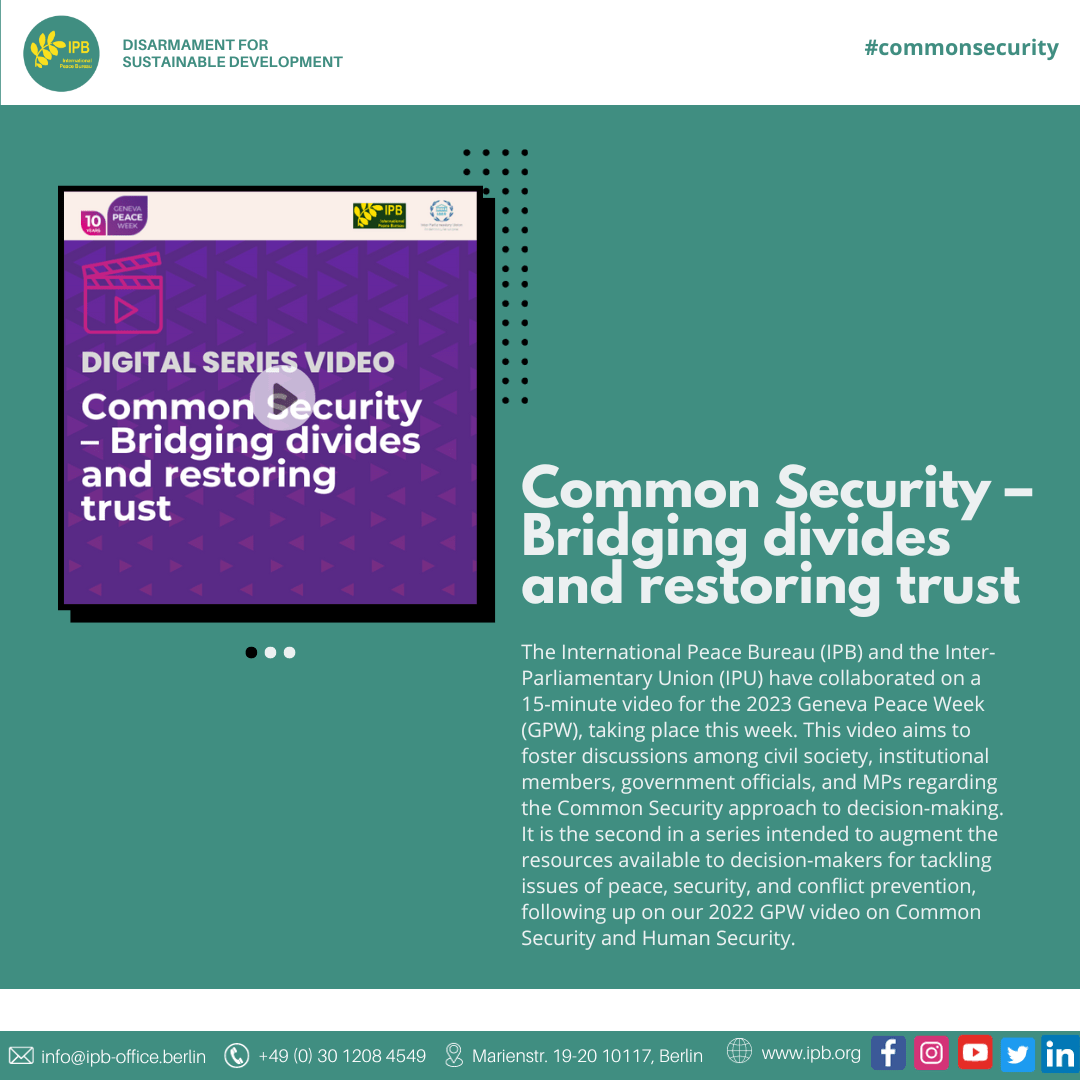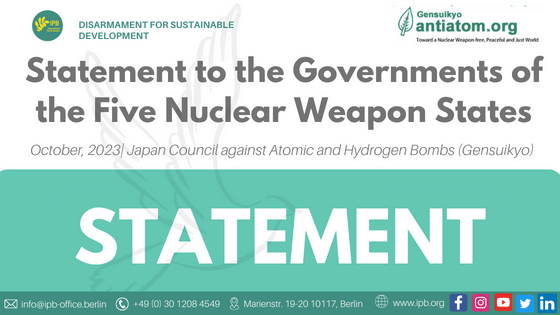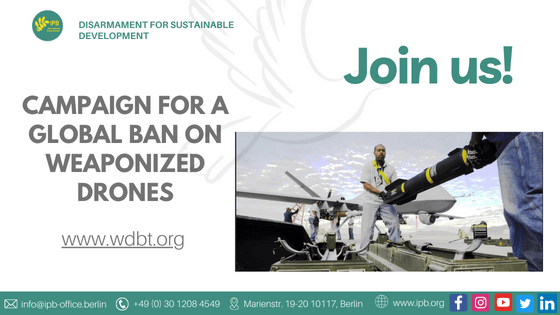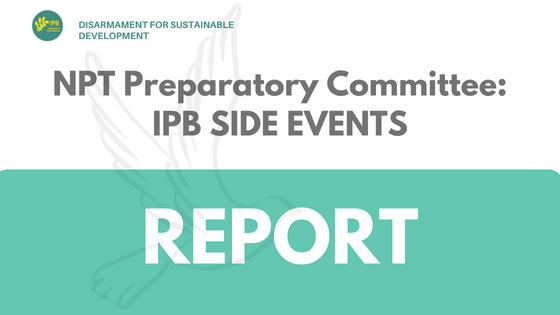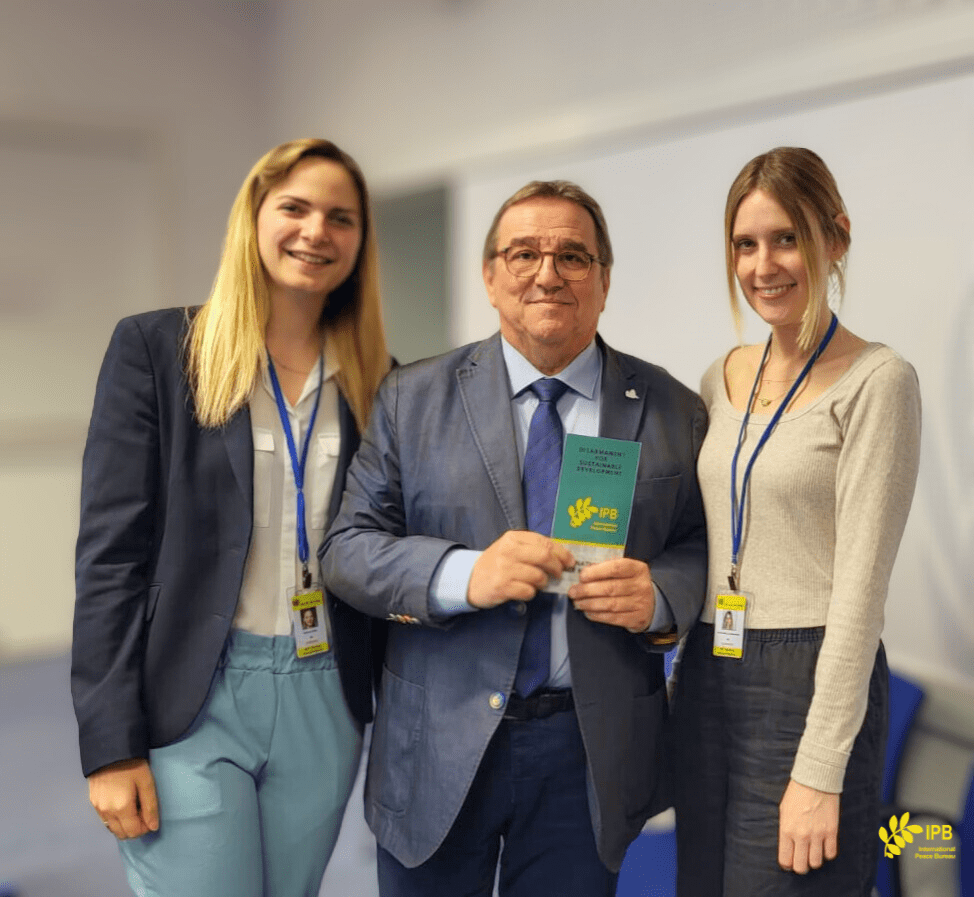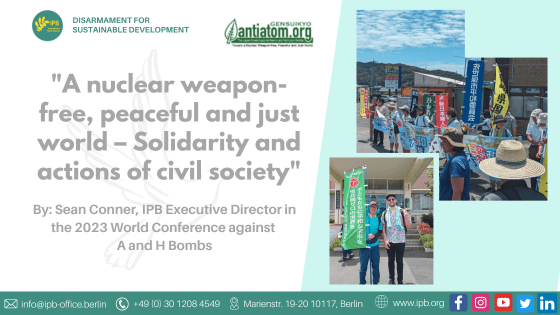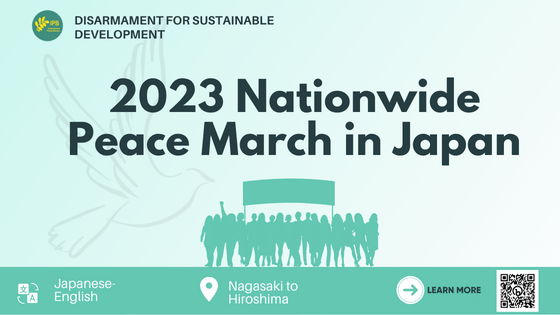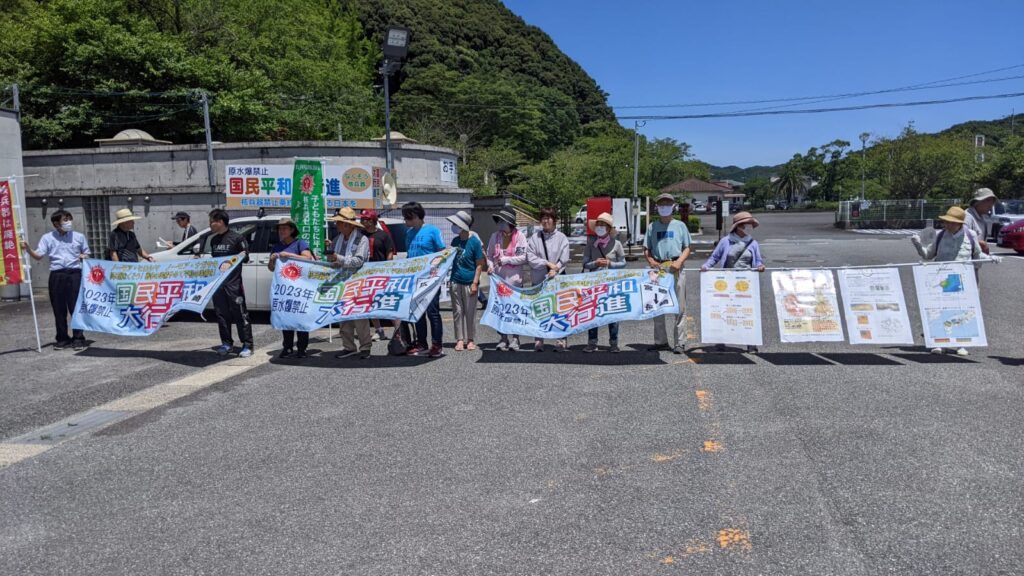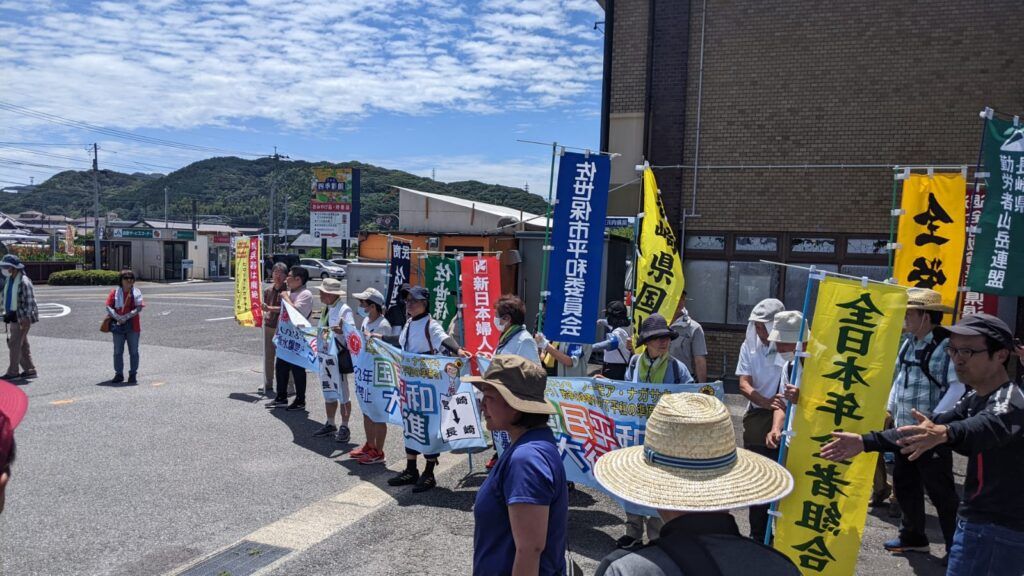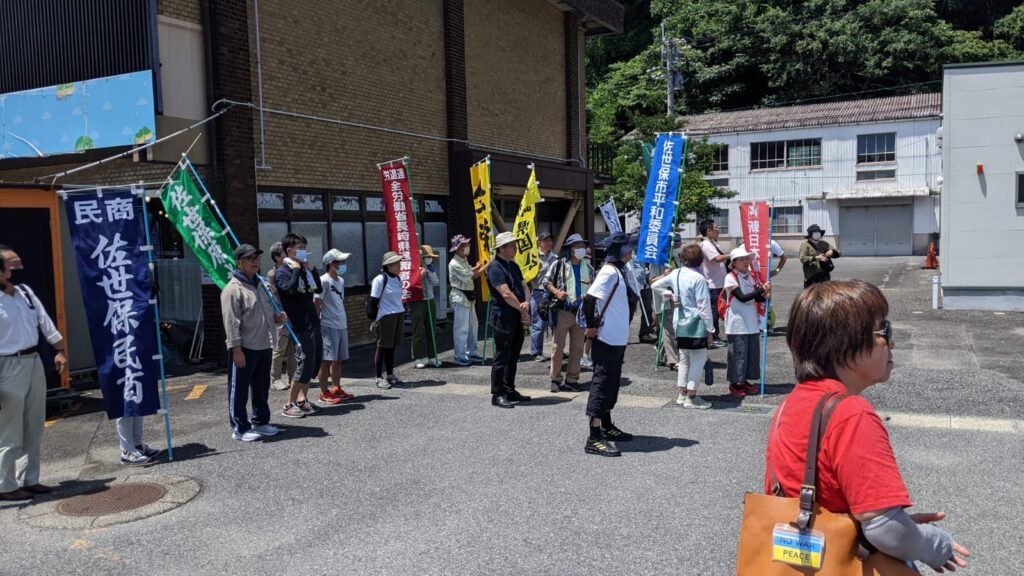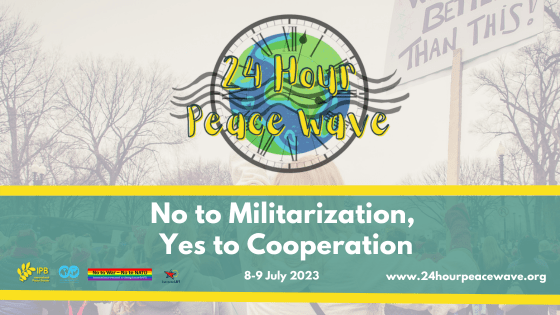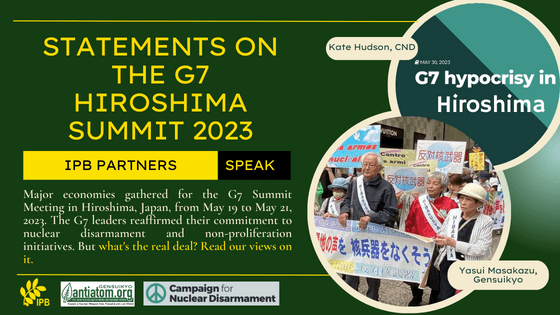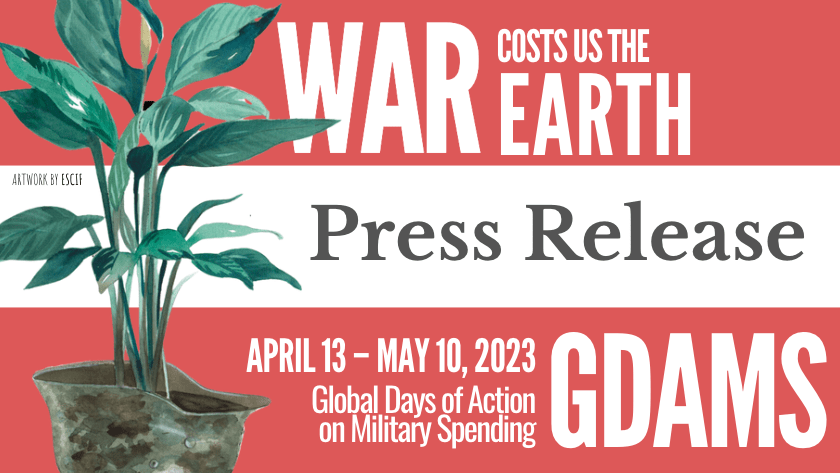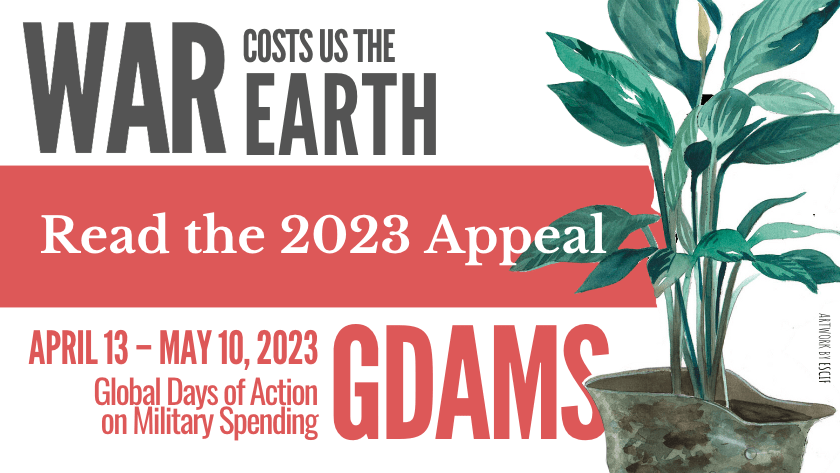[Original post dated 31st October 2023]
The International Peace Bureau (IPB) and the Inter-Parliamentary Union (IPU) are thrilled to announce their collaboration on a special 15-minute video for the 2023 Geneva Peace Week (GPW), unfolding this week. This video, themed “Common Security: Bridging Divides and Restoring Trust,” aspires to unite civil society, institutional members, government officials, MPs, and all peace advocates. The focus is on the applicability of the Common Security approach in decision-making for fostering peaceful societies.
This video marks the second part of a series aimed at fortifying the tools at the disposal of decision-makers, particularly parliamentarians, to effectively address peace, security, and conflict prevention. It follows our GPW 2022 video “Perspectives on global and local applications of Common Security and Human Security”.
About the Video
Offering a thorough exploration of the Common Security concept, the video delves into its historical, philosophical, and political underpinnings, spotlighting its practical applications. Interviews with experts, parliamentarians, and seasoned peace practitioners clarify how Common Security principles tackle today’s global challenges, particularly in regions marred by conflict or tension.
The video is structured into two segments: “What Makes it Successful” and “Potential Stumbling Blocks.” The first section accentuates the positive aspects and success factors of Common Security in rebuilding trust. Conversely, the second section presents a balanced perspective by recognizing potential obstacles in peace processes rooted in Common Security, underscoring the need for humility, compromise, and checks and balances.
Case studies showcasing successful Common Security applications further illustrate its capacity to foster trust among nations and build lasting peace agreements. The video ultimately seeks to encourage an informed dialogue among policymakers, scholars, and the public, emphasizing citizen outreach as key to the approach’s sustainability.
Featured Speakers:
- Mr. Martin Chungong, Secretary General of the Inter-Parliamentary Union;
- H.E. Dr. Ali Rashid Al Nuaimi, Member of the Federal National Council of the UAE, President of the IPU Task Force for the peaceful resolution of the war in Ukraine;
- Mr. Daniel Carden, MP of the United Kingdom, President of the IPU’s Forum of Young Parliamentarians;
- Ms. Dr. Anuradha Chenoy, Adjunct Professor at Jindal Global University, Member of the IPB Common Security working group;
- Mr. Reiner Braun, historian and peace activist, former Executive Director of IPB;
- Ms. Anna Sundström, Secretary General of the Olof Palme International Center;
- Ms. A-Young Moon, Founder of PEACEMOMO, Council Member of IPB.
We extend our deepest gratitude to our incredible speakers and our esteemed colleagues from the Inter-Parliamentary Union (IPU). We invite you to watch, reflect, and engage with the ideas presented in the video. Good vision!

